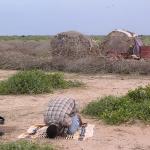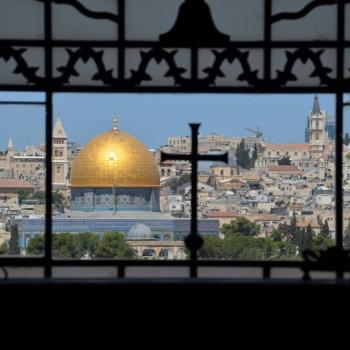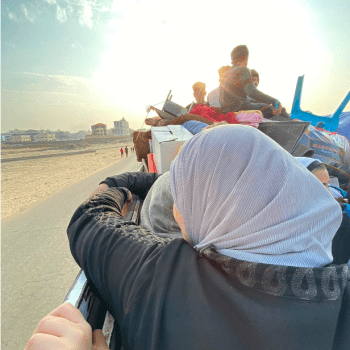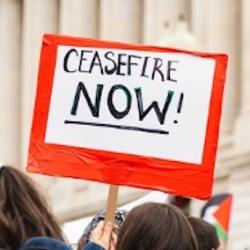Dear readers, please excuse my extended absence. I disappeared in the middle of my Ramadan series, and now Ramadan is over! (I’ll explain later why I disappeared, for anyone who’s interested – just know that all is well.)
Several friends of varying faith communities sent me their recollections of Ramadan, and I’d like to share some of them now, even though it’s a little late, because they’re precious to me.
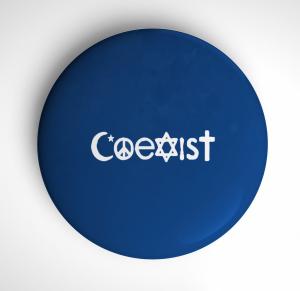
As I mentioned last time, Rockford Illinois had a great interfaith culture that, like most great cultures, included lots and lots of food. We had multiple opportunities to hang out in each other’s spaces each year, share a meal, and get to know each other. (I’m sure this is still the case, but I left Rockford a few years ago.)
For a couple of Ramadans, I organized ladies-only interfaith potluck iftar events that were so much fun. There are two churches on the same block as the mosque, so we had convenient locations for the meals. Each year we had 100-120 attendees, roughly half Muslim and half non-Muslim. I had a strict rule that everyone had to sit next to someone she didn’t know.
I never asked the Muslim women to bring food – I wanted to give them a day off from cooking – but we always had enough. I mean, imagine the spread when fifty women bring 2-3 dishes each!
The Muslim Community Center also hosted an interfaith iftar each year, partly catered, partly potluck. I believe the attendance was usually around 300. Each table had at least one friendly member of the Muslim community to make us feel welcome and encourage conversation.
Here’s how one friend, a member of the Unitarian church, described these evenings:
The Muslim Women’s dinner event at the Mosque and our women’s interfaith potlucks provided me with an opportunity to get to know individual Muslim women. At first, I was hesitant to initiate a conversation. My vague notions of Muslim women were that they might be quiet, religious, and not English speaking.
I quickly learned that despite their appearance (most wearing hijab), we had much in common. Their concerns about children and family, peace and justice, jobs and careers were similar to mine. I found them to be warm and sincere…some witty & funny and others shy & reserved. I did not find them, in general, to be clique-ish or unfriendly.
Another friend didn’t make it to the iftars in Rockford, but she had her own authentic Ramadan experiences:
I first truly met friends that are Muslim during Ramadan in Bethlehem, Palestine as faculty, staff, students or families served through Dar al-Kalima University.
During Ramadan in Bethlehem I observed incredible respect and honor between Christian and Muslim Palestinians in honoring the prayer times, rituals and energy levels of all. Adjustments were always made in respect to school and class schedules as needed.
Since Ramadan is based on the lunar year, it has sometimes fallen in the early heat and longer days of summer, requiring a need to keep one’s body healthy and during times of sleep deprivation, how to cope in families as well.
(Commercial: if you question “business as usual” in Christianity – or want to question it – subscribe to my newsletter, and we can journey together!)
Yet another friend is a Muslim woman of color who was raised in the Nation of Islam, although she and her family identify closer to Sunni Islam now (btw, Nation of Islam has been the victim of much misunderstanding and stereotyping, and we need to just cut that out). She enjoyed iftar-hopping:
I started placing myself at different iftars at different Mosques because I wanted to show people that black Muslims are real! We are not all coverts and we did not all covert because an immigrant showed us the way. I would say this at different interfaith Iftars I would attend because of course people would come and just think Muslims are and look one certain way.
I remember specifically being asked “well if you’re Muslim why don’t you look like them?” Well, with this question I was able to break down many stereotypes and assumptions about how Muslim women and how black Muslims are to be.
And here’s a comment from a dear Muslim woman who emigrated from south Asia:
I love to spend time with friends of other faiths. We have a lot in common. We all worship the same God, even if our worship looks different, and we all want to be happy and make the world a better place.
At the interfaith meals, we just talk about our kids and grandkids, our jobs, our struggles. It’s lovely to be with these sisters.
There you have it! No surprises, right? Because getting to know our neighbors and learning to love them, that’s one of the Great Commandments.
You have about 11 months to plan an interfaith iftar for your own community – you’ll thank me later.
(If you are energized by challenges to the spiritual status quo, you’d enjoy my blog. Sign up for my free newsletter here!)
(If you would like to comment on this post, please pop over to my Facebook page. All of my posts are there and open to constructive comment! I welcome your thoughts. And don’t forget to subscribe to my newsletter!)
RELATED READING:
- Ramadan for Christians: iftar at the Muslim Community Center
- The trap of being an A+ Christian (and how to escape)
- Easy, eye-opening Bible quiz that evangelicals won’t want to take
- The “Narrow Gate” isn’t what they said it was
FEATURED IMAGE: “coexist” by h-melk is marked with CC BY 2.0.


